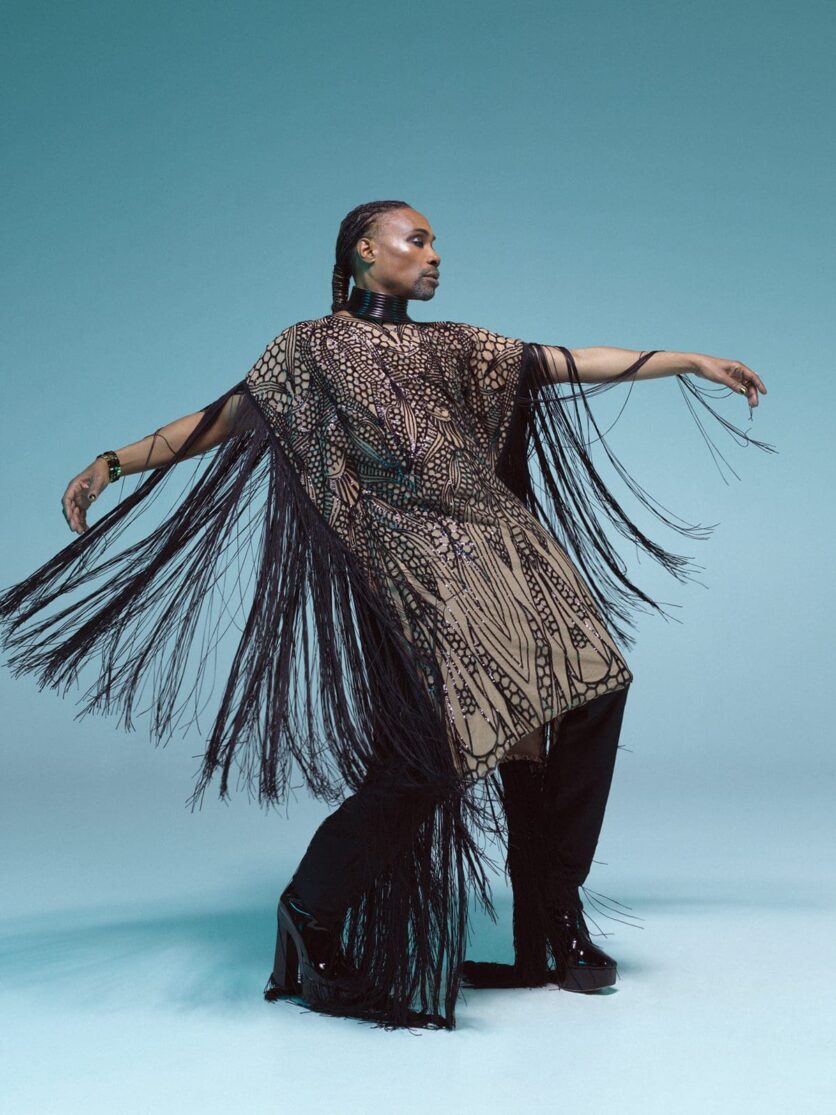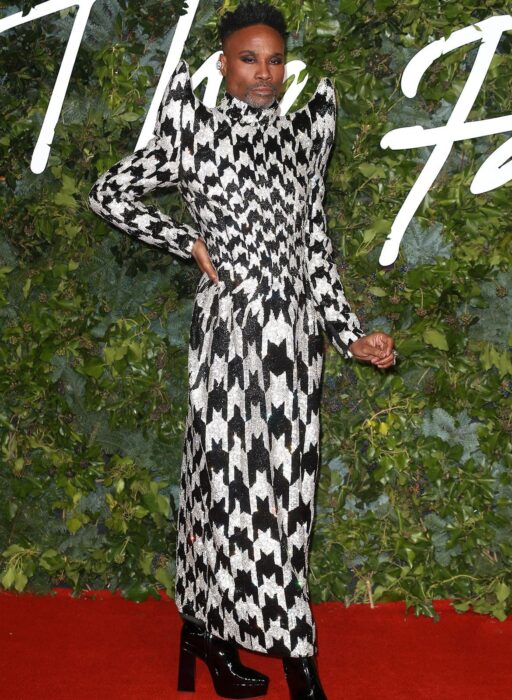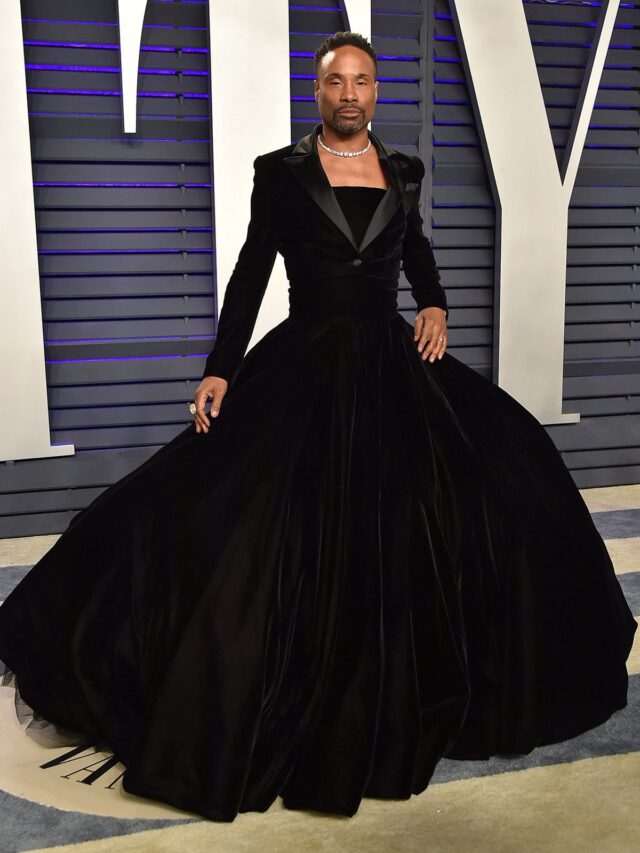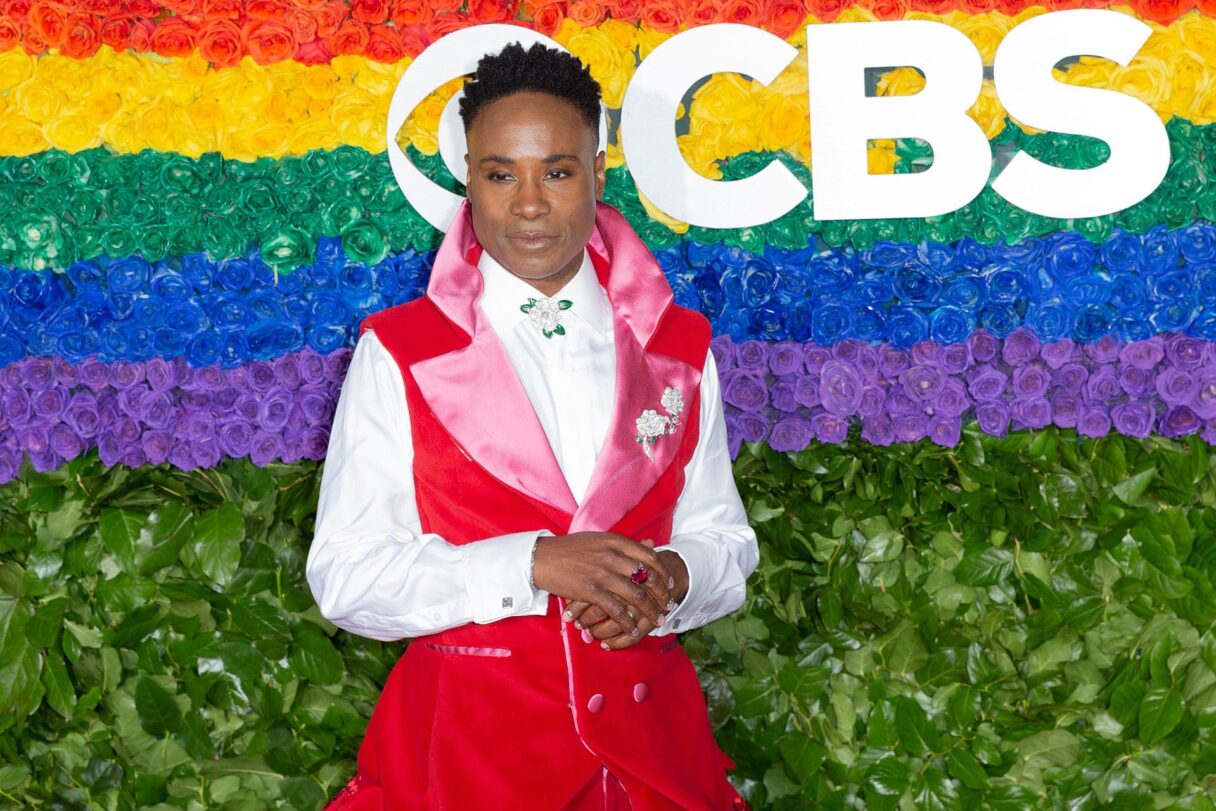
When Billy Porter released his self-titled R&B album in 1997 he was told that his queerness would be a liability – and for a long time it was.
“The doors were slammed in my face,” he recalls. “The roles were non-existent and to be respected as a three-dimensional rounded human being did not exist for my Black queer self. That was hard. My wings were clipped because my queerness was not okay and I was not welcome.”
In response, the American performer found other creative mediums in which to express himself more authentically as an artist – namely acting and musical theatre. 25 years later, however, Porter is staging a return to mainstream music and an industry that now purports to embrace his queerness as a superpower.
“They kicked my Black f****t ass out and now they want me,” he says. “There were some people in the mainstream record industry that remembered me and said, ‘Be that queer thing that you were trying to be in the ’90s, we can do that now.’ I’m back on my own terms and it is magical.”
But, just as the music industry has changed, so has Porter. The R&B has been replaced by dance and disco anthems; a genre with added significance for Porter, who came out aged 16 in the midst of the 1980s AIDS crisis when clubs and discos were a much-needed safe space for the queer community.

“We went straight to the frontlines to fight for our lives. The place where we felt seen, heard and fellowship was the clubs,” Porter explains of the inspiration behind his upcoming album, Black Mona Lisa. “We went to the clubs on the weekends and we recharged so that we could go back out into the world and fight. I wanted to honour my people. I wanted to honour my journey, what saved me and what helped me heal. It was very healing to go to these spaces.”
Refreshingly outspoken about his experiences as an LGBT+ actor and musician, Porter has never been one to hide his queerness, putting it front and centre in headline-grabbing red carpet looks that have paved the way for male style icons such as Lil Nas X and Donald Glover. After all, it takes a special kind of fabulous to dress as an Egyptian god and have six topless models carry you into the Met Gala.
The flip side of that, of course, is that Porter has been on the receiving end of much of the resurgent backlash to queer art, which he believes shares similarities to that from the ’90s. “It’s the same thing that it has always been, vilifying the other and vilifying the thing you don’t understand. It’s the circle of life. History repeats itself and those who don’t know their history are doomed to repeat it.”
However, he muses, the vitriol this time around is different because the ‘change has already happened’. “You can’t put the toothpaste back in the tube. In 1997 I was not possible, and despite everything that’s going on right now and all the pushback, I’m possible and I’m here. Winners write the history and, baby, I win. I’m here and I’m not going anywhere.”

Porter at The Fashion Awards in London, 2021. Image: Shutterstock/Fred Duval

Porter at the Vanity Fair Oscars Party in 2019. Image: Shutterstock/DFree
Porter’s most recent musical output, the ear-wormy dance anthems Broke A Sweat and Baby Was a Dancer, are songs intended to be performed live and truly represent who he is as a performer and creative. But, for Porter, this comeback is also about joining artists like Beyonce in putting dance music, which he believes has been relegated and dismissed for decades, back on the map.
“I want to be a part of honouring the genre and putting it back into the zeitgeist in the way that it should be respected and honoured and enjoyed. The music is healing, the music is celebratory, the music is really powerful.”
The singles will feature on Black Mona Lisa, which he describes as ‘the greatest musical account of my artistry and my creativity’. “It’s all the things I am. It’s all of the influences. The music shapeshifts, it’s all different genres and it’s all different styles.
“The defining factor is me. I’ve lived all of these things so I can talk about all of them from a place of experience. Having really experienced life and continuing to experience life and being able to talk about that is magical.”
Of course, it isn’t only the music industry that has become almost unrecognisable since Porter last released a mainstream album. The very nature of celebrity itself has changed dramatically: largely thanks to the double-edged sword of an always-online fanbase and its attendant social media following. While he recognises the opportunity and importance of social media for an artist – Porter has amassed a following of 2.2 million on Instagram at the time of publishing – he describes it as the ‘Wild West’.
“It’s not my favourite thing because we don’t really know what it is,” he explains. “I feel like we’ve given a little bit too much power to the algorithm. If I hear that word one more time… I’m not a f**king algorithm! The labels and the artists have given a bit of our power away to this entity that means nothing and everything at the same time.”
For many Porter will be best known for his roles in hit TV shows including Pose and American Horror Story but it is the one part of his career he is reticent to speak about because, like thousands of other actors in the US, he is currently on strike as part of the ongoing SAG-AFTRA industrial action.

Porter at the Tony Awards in New York, 2019. Image: Shutterstock/Lev Radin
Hollywood actors are striking for better wages, working conditions and protections from the use of artificial intelligence. It is unclear what effect these strikes will have on the industry in the long term but, as of the date of publishing, neither side is backing down – and Porter is characteristically candid about his reasons for supporting the strike.
“Bob Iger flies his private plane to a billionaire’s retreat, gets on television and says that our demands for a fair wage are unrealistic. He makes $78,000 a day and my residual check says six cents. F**k you! I’ve had to sell my house because I don’t know where my next paycheque is coming from. I am one award away from an EGOT and I still live cheque to cheque. I haven’t made any money yet because they don’t pay me residuals.
“I hope this strike reminds these executives, who run studios without a creative bone in their body, that they can’t do this without us. You can’t do a thing without us and you treat us like we don’t matter, well we do.”
Black Mona Lisa will be released in autumn 2023.
Read more: Simu Liu and Issa Rae on why Barbie is a win for diversity
The post Billy Porter: “I’m back on my own terms and it’s magical” appeared first on Luxury London.
